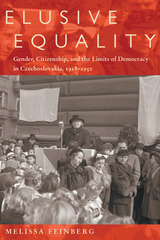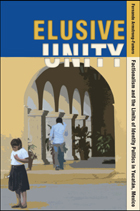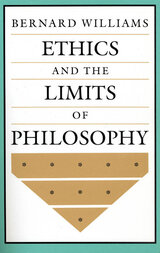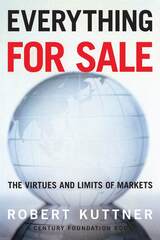6 start with E start with E

When Czechoslovakia became independent in 1918, Czechs embraced democracy, which they saw as particularly suited to their national interests. Politicians enthusiastically supported a constitution that proclaimed all citizens, women as well as men, legally equal. But they soon found themselves split over how to implement this pledge. Some believed democracy required extensive egalitarian legislation. Others contended that any commitment to equality had to bow before other social interests, such as preserving the traditional family.
On the eve of World War II, Czech leaders jettisoned the young republic for an “authoritarian democracy” that firmly placed their nation, and not the individual citizen, at the center of politics. In 1948, they turned to a Communist-led “people's democracy,” which also devalued individual rights.
By examining specific policy issues, including marriage and family law, civil service regulations, citizenship law, and abortion statutes, Elusive Equality demonstrates the relationship between Czechs' ideas about gender roles and their attitudes toward democracy. Gradually, many Czechs became convinced that protecting a traditionally gendered family ideal was more important to their national survival than adhering to constitutionally prescribed standards of equal citizenship. Through extensive original research, Melissa Feinberg assembles a compelling account of how early Czech progress in women's rights, tied to democratic reforms, eventually lost momentum in the face of political transformations and the separation of state and domestic issues. Moreover, Feinberg presents a prism through which our understanding of twentieth-century democracy is deepened, and a cautionary tale for all those who want to make democratic governments work.

The rural inhabitants of this region have had some of their most important dealings with their nation’s government as self-identified “peasants” and “Maya.” Using ethnography, oral history, and archival research, Armstrong-Fumero shows how the same body of narrative tropes has defined the local experience of twentieth-century agrarianism and twenty-first-century multiculturalism.
Through these recycled narratives, contemporary multicultural politics have also inherited some ambiguities that were built into its agrarian predecessor. Specifically, local experiences of peasant and indigenous politics are shaped by tensions between the vernacular language of identity and the intense factionalism that often defines the social organization of rural communities. This significant contribution will be of interest to historians, anthropologists, and political scientists studying Latin America and the Maya.

In the early fall of 1897, yellow fever shuttered businesses, paralyzed trade, and caused tens of thousand of people living in the southern United States to abandon their homes and flee for their lives. Originating in Cuba, the deadly plague inspired disease-control measures that not only protected U.S. trade interests but also justified the political and economic domination of the island nation from which the pestilence came. By focusing on yellow fever, Epidemic Invasions uncovers for the first time how the devastating power of this virus profoundly shaped the relationship between the two countries.
Yellow fever in Cuba, Mariola Espinosa demonstrates, motivated the United States to declare war against Spain in 1898, and, after the war was won and the disease eradicated, the United States demanded that Cuba pledge in its new constitution to maintain the sanitation standards established during the occupation. By situating the history of the fight against yellow fever within its political, military, and economic context, Espinosa reveals that the U.S. program of sanitation and disease control in Cuba was not a charitable endeavor. Instead, she shows that it was an exercise in colonial public health that served to eliminate threats to the continued expansion of U.S. influence in the world.

Bernard Williams is an eloquent member of that small but important group of distinguished thinkers who are trying to erase the borders between the experts and all of us who grapple with moral issues in our own lives. In this book he delivers a sustained indictment of systematic moral theory from Kant onward and offers a persuasive alternative.
Kant’s ideas involved a view of the self we can no longer accept. Modern theories such as utilitarianism and contractualism usually offer criteria that lie outside the self altogether, and this, together with an emphasis on system, has weakened ethical thought. Why should a set of ideas have any special authority over our sentiments just because it has the structure of a theory? How could abstract theory help the individual answer the Socratic question “How should I live?”
Williams’s goal is nothing less than to reorient ethics toward the individual. He accuses modern moral philosophers of retreating to system and deserting individuals in their current social context. He believes that the ethical work of Plato and Aristotle is nearer to the truth of what ethical life is, but at the same time recognizes that the modern world makes unparalleled demands on ethical thought. He deals with the most thorny questions in contemporary philosophy and offers new ideas about issues such as relativism, objectivity, and the possibility of ethical knowledge. Williams has written an imaginative, ingenious book that calls for philosophers to transcend their self-imposed limits and to give full attention to the complexities of the ethical life.

"The best survey of the limits of free markets that we have. . . . A much needed plea for pragmatism: Take from free markets what is good and do not hesitate to recognize what is bad."—Jeff Madrick, Los Angeles Times
"It ought to be compulsory reading for all politicians—fortunately for them and us, it is an elegant read."—The Economist
"Demonstrating an impressive mastery of a vast range of material, Mr. Kuttner lays out the case for the market's insufficiency in field after field: employment, medicine, banking, securities, telecommunications, electric power."—Nicholas Lemann, New York Times Book Review
"A powerful empirical broadside. One by one, he lays on cases where governments have outdone markets, or at least performed well."—Michael Hirsh, Newsweek
"To understand the economic policy debates that will take place in the next few years, you can't do better than to read this book."—Suzanne Garment, Washington Post Book World

When asked why people obey the law, legal scholars usually give two answers. Law deters illicit activities by specifying sanctions, and it possesses legitimate authority in the eyes of society. Richard McAdams shifts the prism on this familiar question to offer another compelling explanation of how the law creates compliance: through its expressive power to coordinate our behavior and inform our beliefs.
“McAdams’s account is useful, powerful, and—a rarity in legal theory—concrete…McAdams’s treatment reveals important insights into how rational agents reason and interact both with one another and with the law. The Expressive Powers of Law is a valuable contribution to our understanding of these interactions.”
—Harvard Law Review
“McAdams’s analysis widening the perspective of our understanding of why people comply with the law should be welcomed by those interested either in the nature of law, the function of law, or both…McAdams shows how law sometimes works by a power of suggestion. His varied examples are fascinating for their capacity both to demonstrate and to show the limits of law’s expressive power.”
—Patrick McKinley Brennan, Review of Metaphysics
READERS
Browse our collection.
PUBLISHERS
See BiblioVault's publisher services.
STUDENT SERVICES
Files for college accessibility offices.
UChicago Accessibility Resources
home | accessibility | search | about | contact us
BiblioVault ® 2001 - 2024
The University of Chicago Press









